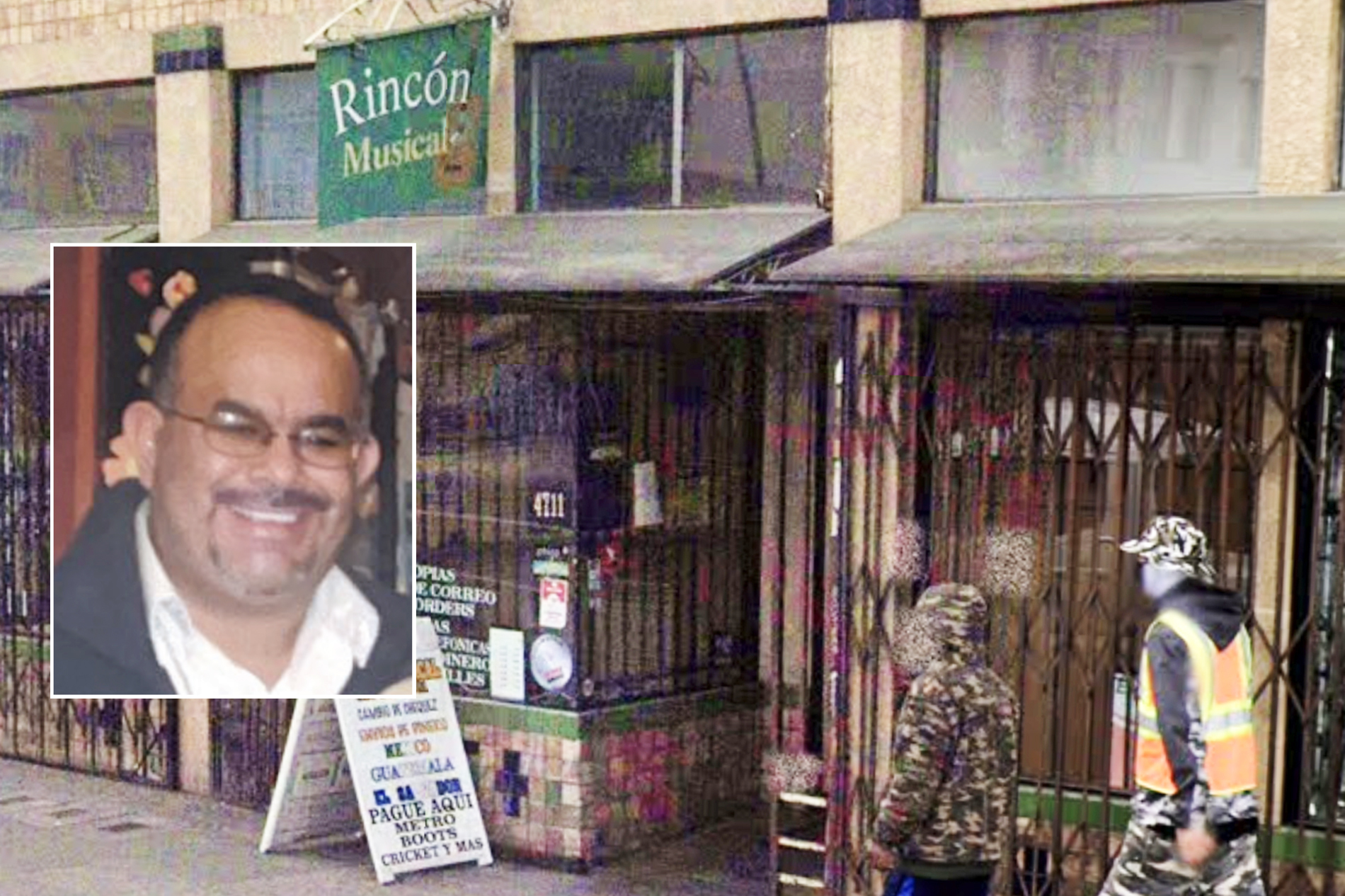The wads of cash were often so large they couldn’t fit through the teller’s window. But the staff at an Oakland money transfer service was obliging and often opened a side door to take the money.
The payments were not the savings of U.S.-based immigrants sending cash to needy family members back home. Instead, Rincon Musical’s owner, Felipe Mora, and three employees were helping local drug dealers launder more than $100,000 in profits, according to the Internal Revenue Service investigators, who say the quartet surreptitiously sent money to Mexico from 2020 to 2022.
Mora and his employees, say federal authorities, “neither cared nor asked if the cash was derived from drug sales.”
The investigation sheds light on one way profits from drug sales in the Bay Area are making their way back to Mexico.
The scheme is part of a growing trend of drug suppliers using remittances to repatriate profits to suspected drug cartels, which authorities suspect are playing a bigger role in street-level drug dealing.
Until recently cartels made much of their profits smuggling narcotics across the border for sale to street gangs, which in turn distributed the illicit drugs.
Court records state that one drug dealer who cooperated with federal law enforcement was “often instructed by his source of supply to send money back to Mexico.”
Mora, who pleaded guilty to conspiracy money laundering charges, was sentenced to 18 months in prison on March 19. His co-defendants, one of whom eventually opened another money remittance service named America Latina, have made plea deals and await their sentencing.
“Money and greed are the foundation of the cartel business model and Mora provided a lifeline by laundering drug proceeds,” said DEA Special Agent in Charge Brian M. Clark in a statement.
Mora and his employees, all of whom worked at his now-shuttered businesses on International Avenue in the Fruitvale neighborhood, did not respond to requests for comment.
Busted dealers and confidential informants
The investigation, headed by the IRS and the Drug Enforcement Agency, began in 2020 after the arrest of a Honduran drug dealer who eventually revealed how drug profits were sent back to Mexico. That unnamed dealer, and a second who used the service, told officials how the money laundering scheme worked, according to the affidavit written by IRS Special Agent Lisa Sasso.
Before the charges were filed and the shop was shut down, the dealers would often bring bags of cash to the store and hand them over to several trusted tellers—Griselda Liceaga, Veronica Mora and Yoselin Perez Ramirez—all of whom have since been charged.
After taking a “fee,” the tellers sent sums below $3,000, a threshold that they knew would not be flagged by law enforcement or regulators.
The tellers used their access to multiple legitimate accounts to hide the identity of the dealers who were paying them to send money to Mexico. In turn, the tellers used the identity of normal legal customers to obscure each real sender. The recipients’ identities were also masked.
All of this was coordinated via phone messages. Instead of communicating details of the recipients in person, the drug dealers had the WhatsApp accounts of the tellers, to whom they sent the details about the recipients. Their relationship was so close that one dealer would deliver loads of cash and leave it at the money transfer location, only later instructing the tellers to whom and where to send it.
The employees had specific knowledge about the whole process and how not to get caught because they are required to take annual anti-money-laundering training, court documents say.
When federal investigators recruited confidential sources to try to send cash in the same way, both were successful during the January 2022 operation.
One undercover informant told the teller he wanted to send money for his “boss” and did not want to use his real name. The teller obliged.
When the informant approached an unnamed teller, the teller asked a series of questions about who sent the informant and whether they had a WhatsApp photo of the man who sent him or his cellphone number.
The informant had no information to give, but the teller, Veronica Mora, eventually told him to show her an image of his boss next time and agreed to send the money anyway.
“So that you’re not asked to provide ID, you have to send less than one thousand dollars, but that is per month,” Mora told him.
The second confidential source was also successful when they visited the next month and teller Yoselin Perez Ramirez sent $8,785 in three separate chunks to three recipients whose names were never provided. She also used names, addresses and identifications that masked the informant’s identity. She then charged him a transaction fee of $95 and an unrecorded fee of $120.
On another occasion in April 2022, the second informant contacted Perez Ramirez and told her he wanted to wire $20,000 to Culiacan, Mexico, which federal authors said is a narco-trafficking hot spot. The next day, he entered the store with $20,000 in a plastic bag. Perez Ramirez then wired all of the money in eight separate tranches to Mexico using California licenses as ID and Mexican identities of people not involved in the operation.
The shop’s owner, Felipe Mora, who now works at Target, has taken responsibility for his illegal operation and expressed remorse.
“Ultimately, the least I can do for my family after my selfish actions that led to this case is to make every attempt to serve my time as quickly as possible so I can go back to support my family,” he wrote to the court before his sentence was finalized.
